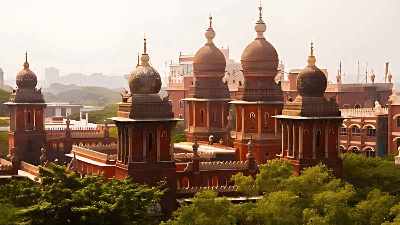In a landmark decision, the Madras High Court has upheld the sacrosanct right to religious freedom, directing the Hindu Religious and Charitable Endowments Department to ensure the inclusion of all devotees, irrespective of caste, in the Margazhi festival at Arulmighu Chelliyaramman Temple in Aruppukottai, Virudhunagar District. The court’s verdict came in response to a writ petition filed by Pandiarajan C, who highlighted the alleged excommunication of scheduled caste community members by the Maravar community during the temple festival. Despite resolutions in peace committee meetings, discriminatory practices persisted, prompting the court to emphasize the constitutional right to perform religious duties and the public nature of temples. This significant ruling underscores the court’s commitment to addressing discriminatory practices that infringe upon fundamental rights.
Court Orders Inclusion of SC Community in Temple Margazhi Festival
Madras High Court Margazhi Festival Inclusion Orde
Published: 11:54 AM, 27 Dec 2023
Even after 75 years of independence, if this state of affairs prevails on account of community in the village, it needs to be addressed and prevented, the court stressed.
Court’s Directive for Inclusive Festivities
The Madras High Court recently directed the Hindu Religious and Charitable Endowments Department (HR & CE Department) to conduct the Margazhi festival at Arulmighu Chelliyaramman Temple in Aruppukottai, Virudhunagar District. The bench of Justice B Pugalendhi directed the Tahsildar of Thiruchuli Taluk to ascertain from the Village Administration Officer and other revenue officials if any untouchability issue prevails in the village and if found so, submit a report to the District Collector of Virudhunagar District who shall take appropriate action.
“The HR & CE Department has to ensure that all the devotees including the scheduled caste people are permitted in the temple festival,” ordered the court.
Origins of the Legal Matter
The order was passed in a writ petition moved by one Pandiarajan C. The petitioner claimed that scheduled caste community people had been excommunicated from participating in the temple Margazhi Festival of Arulmighu Chelliyaramman Temple. His counsel submitted before the single-judge bench that people from the Maravar community in the petitioner’s village were not permitting the scheduled caste people to participate in the temple festival, and they were preventing them from taking mulaippari and not collecting tax from them for the temple festival. The court was further apprised that the petitioner had already approached the concerned Tahsildar with his complaint, and the Tahsildar had conducted a peace committee meeting between both the groups in the presence of the Deputy Superintendent of Police, the Inspector of Police, Tiruchuli, the Village Administrative officer, Sethupurram, the Inspector, HR & CE Department, Aruppukottai.
Resolution and Challenges
Furthermore, a resolution was passed in the said meeting that the village festival had to be performed only as per the advice of the HR & CE Department that no community people were entitled to conduct the festival by collecting tax separately and that the parties were restrained from spreading any rumors on social media, the court was told.
Read More
- TN release new guidelines for highway Petrol bunk
- Legal Expertise Unveiled: A Guide to Law Specialties and Expert Services
- Income Tax Appellate Tribunal ITAT: The Best Reliable Lawyers
- Chit fund Dispute
- Advocates for Hospital disputes
- Income Tax Appellate Tribunal (ITAT): The Key to Fair Taxation
Upholding Constitutional Rights
The counsel for the petitioner alleged that even after this resolution, the Hindus were not permitting the scheduled caste people to participate in the Margazhi festival of the above mentioned temple. The high court said that even after 75 years of independence if this state of affairs prevails on account of community in the village, it needs to be addressed and prevented. “No person nor any group can restrain a person from performing his religious duties, and it is the right guaranteed under the Constitution,” said the bench.
Temple Governance and Legal Oversight
In addition, the court emphasized that a temple worshipped by the public is a public temple and the HR & CE Department has every right to interfere with the affairs of the temple. Therefore, taking note of the fact that in the matter at hand, it was agreed between the parties in the peace committee meeting that the festival had to be conducted by the HR & CE Department, the court issued the above mentioned directions and disposed of the petition.
Case Title: Pandiarajan .C v. The District Collector, Virudhunagar District

